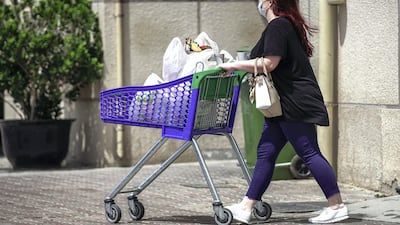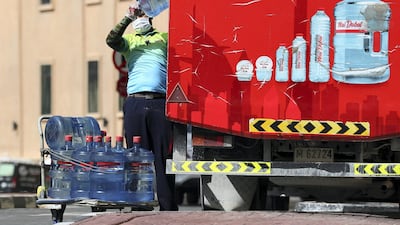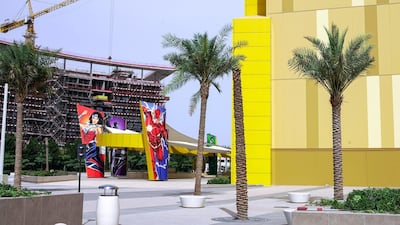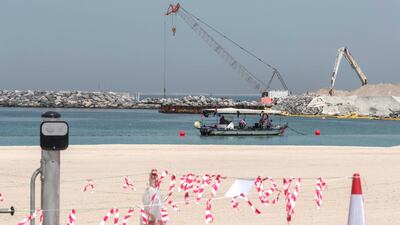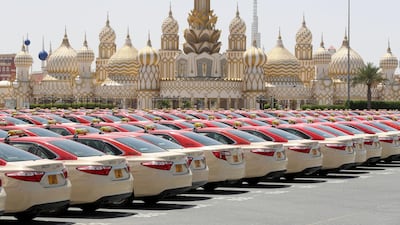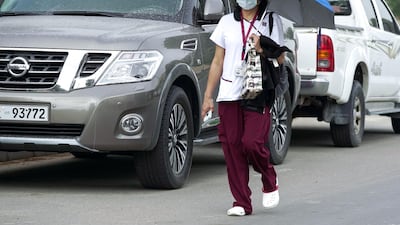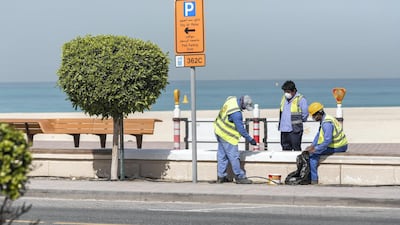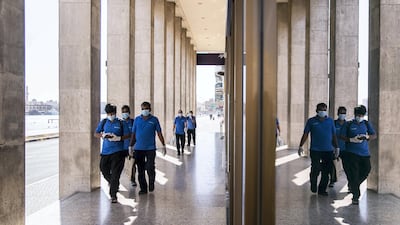The UAE has conducted 539,195 tests for Covid-19 since the outbreak began.
On Wednesday, the country’s Minister of Health and Prevention, Abdulrahman Al Owais, said the UAE intended to double this figure “during the coming period” as part of a strategy to identify all local cases, isolate and treat them before it spreads further.
His update on testing figures came as 300 new cases of coronavirus were announced in the UAE, taking the country’s total to 2,659. Fifty-three people have recovered from the virus since Tuesday, adding to the country’s growing number of recoveries – currently at 239. The total number of deaths remains at 12.
Mr Al Owais said the high figures were a result of the UAE’s robust approach to testing which “reflects the strength of our health system and the efficiency of our medical staff.”
He thanked Emiratis and residents for their co-operation and solidarity during these “exceptional times in which we live” which have demonstrated immense social cohesion.
“The health and safety of citizens and residents is a priority, and it is a national responsibility that we all share,” Mr Al Owais said.
On Wednesday, the UAE’s regular coronavirus briefing, held at 5pm every two days, also heard from Abdullah Ali Al Nuaimi, acting assistant Undersecretary for Communication and International Relations at the Ministry of Human Resources and Emiratisation.
He said regulations had been put in place as part of a national programme to support and protect the country’s workforce, in co-ordination with the National Crisis and Emergency Management Authority.
Part of this programme is the reduction of staff in office to 30 per cent of their typical capacity, increasing buses for workers to allow social distancing and putting measures in place to protect delivery drivers.
“The ministry has launched a temporary guide to remote work for private sector companies, which includes necessary measures to be taken in an emergency circumstance,” said Mr Al Nuaimi.
He said a committee had been formed to ensure job security and stability for Emiratis working in the private sector and to look into any complaints and “follow up on their condition”.
The ministry has temporarily allowed for employment contracts to be modified based on mutual consent between the employee and the company. These amendments can include granting the employee paid leave or unpaid leave, temporarily reducing their wages for a specific period or permanently reducing their wages.
Mr Al Nuaimi advised anyone who was currently seeking a job to register on the ministry's virtual labour market.
On Wednesday, Dr Farida Al Hosani, spokeswoman for the UAE health sector, reassured the public that the high number of cases in the country were an indication of widespread testing.
She said more drive-through testing centres would be opened across the country to support the UAE’s strategy to test as many people as possible to isolate and treat patients, preventing them from spreading the virus to others.
Asked about the slow recovery rate compared to the number of growing infections, Dr Al Hosani said the disease spreads much faster than the typical amount of time it takes for a patient to fully recover.
“According to the World Health Organisation, the global rate of recovery is less than 25 per cent of the total number of cases. This is because it takes a mild case between two to three weeks to recover while severe cases may take much longer.”
The UAE mandated masks to be worn in public at all times last week, which has led to reports of increased littering with used personal protective equipment found strewn in the streets.
Dr Al Hosani condemned this behaviour, saying it could lead to increased cases of infection.
"Littering is not a part of our culture. Throwing masks and gloves on the floor could spread the risk of infection. This puts cleaning workers at risk too. We must be well behaved and throw masks and gloves in bins after placing them in sealed bags, to protect everyone."


